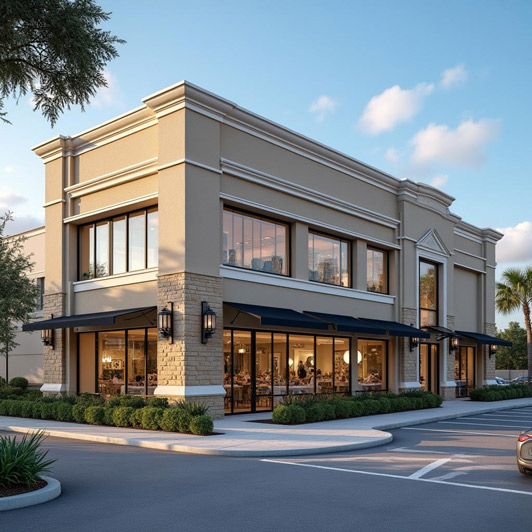Buying retail properties in Pensacola, Florida
When considering the purchase of retail properties in Pensacola, Florida, there are several key factors and aspects to take into account that can significantly influence your investment decision. Pensacola, situated in the northwestern part of the Florida Panhandle, is not only known for its beautiful beaches and rich history but also boasts a vibrant economy that supports various retail opportunities.

When considering an investment in retail properties in Pensacola, Florida, there are several critical factors that potential investors should thoroughly evaluate to ensure a successful investment. Understanding the local market dynamics, economic indicators, and demographic trends can significantly influence the decision-making process.
Market Analysis
First and foremost, a comprehensive market analysis is essential. Investors should examine the current state of the retail market in Pensacola, which includes assessing vacancy rates, rental prices, and the overall demand for retail space. Analyzing historical data on retail performance can provide insights into trends and potential future developments in the area. Additionally, it is vital to consider the competition within the market. Identifying existing retail properties, their tenants, and the services they offer can help investors gauge the saturation level of the market. Understanding what types of retail businesses are thriving and which are struggling can guide investors in selecting the right property that aligns with market demand.
Economic Indicators
Investors should also pay close attention to the economic indicators that can affect retail performance. Pensacola's economy is influenced by various sectors, including tourism, military presence, and healthcare. Analyzing employment rates, income levels, and consumer spending habits can provide a clearer picture of the area's economic health. Moreover, any upcoming developments, such as infrastructure projects or new businesses entering the market, can signal growth potential. Investors should research local government plans and initiatives that may impact the retail landscape, including zoning regulations and incentives for businesses.
Demographics and Target Audience
Understanding the demographics of Pensacola is crucial for identifying the target audience for retail properties. Factors such as population growth, age distribution, and income levels can significantly impact the types of retail businesses that will succeed. For instance, a younger population may favor trendy clothing stores and entertainment venues, while an older demographic might prefer grocery stores and healthcare-related services. Investors should consider conducting surveys or utilizing market research tools to gather data about consumer preferences and shopping habits in the area. This information can help investors make informed decisions about the types of tenants to attract and the amenities to offer within their retail properties.
Location and Accessibility
The location of a retail property is one of the most critical factors influencing its success. Investors should assess the accessibility of the property, including its proximity to major highways, public transportation options, and foot traffic. High-traffic areas with good visibility are often more desirable for retail businesses, as they attract more customers. Furthermore, analyzing the surrounding neighborhood can provide insights into potential customer bases. Properties located near residential areas, schools, or business districts may have a built-in clientele, making them more attractive investments.
Legal Considerations and Due Diligence
Before finalizing any purchase, investors must conduct thorough due diligence, which includes reviewing legal considerations related to the property. This process involves examining title deeds, lease agreements, and any existing liabilities associated with the property. Engaging a real estate attorney can help navigate the complexities of property law and ensure compliance with local regulations. Additionally, investors should be aware of any zoning laws that may affect the intended use of the retail property. Understanding these regulations is crucial to avoid potential legal issues that could arise after the purchase.
Financing Options
Investors should also explore various financing options available for purchasing retail properties. Traditional bank loans, private lenders, and government-backed loans are some of the financing avenues that can be considered. Each option has its advantages and disadvantages, and understanding the terms, interest rates, and repayment plans is essential for making an informed decision. Moreover, investors should evaluate their financial capacity and determine how much they are willing to invest. Creating a detailed budget that includes not only the purchase price but also ongoing expenses such as maintenance, property taxes, and insurance can help in planning for the long term.
Investing in retail properties in Pensacola, Florida, can be a lucrative opportunity if approached with careful planning and thorough research. By analyzing market conditions, understanding economic and demographic factors, considering location, conducting due diligence, and exploring financing options, investors can position themselves for success in this vibrant and growing market. As with any investment, taking the time to gather information and make informed decisions is key to achieving desired outcomes.